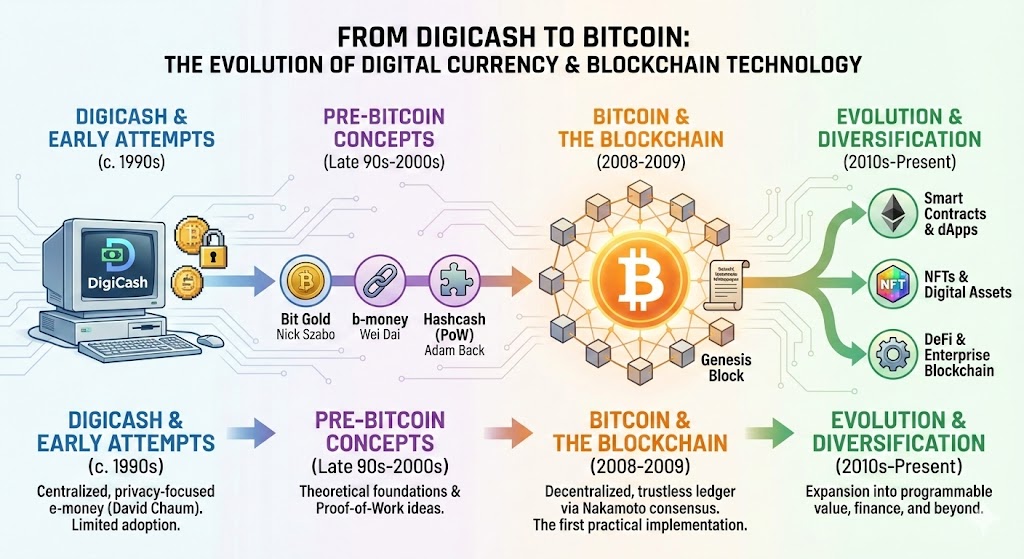Diversity and Inclusion Courses: Empowering Individuals to Create a More Inclusive World
1. Introduction
Diversity and inclusion have become increasingly important topics in today’s society. As we strive towards creating a more equitable world, it is crucial that individuals understand the importance of diversity and inclusion in all aspects of life. This article explores the benefits of taking diversity and inclusion courses and how they can empower individuals to create a more inclusive world. From understanding systemic oppression and privilege to promoting equity and fairness in education and beyond, this article provides a comprehensive overview of the role diversity and inclusion courses play in shaping a better future for all.
2. The Importance of Diversity and Inclusion in Today’s Society
Diversity and inclusion are critical components of any thriving society. They enable individuals from different backgrounds and experiences to come together and contribute their unique perspectives and skills to create a more vibrant and dynamic community. When people with diverse backgrounds and perspectives work together, they can bring new ideas and solutions to problems that might otherwise go unnoticed or overlooked. This can lead to innovation, creativity, and growth, both personally and professionally.
Diversity and inclusion are essential for creating a fair and equitable society where everyone has the opportunity to succeed. Without diversity and inclusion, certain groups may face discrimination, exclusion, and marginalization, which can limit their potential and prevent them from reaching their fullest potential. This can result in a less productive and less successful society as a whole.
In today’s rapidly changing world, it is more important than ever to embrace diversity and inclusion. As our society becomes increasingly globalized, it is crucial that we learn to appreciate and value differences in order to build stronger, more resilient communities. By fostering an environment of inclusivity and respect, we can create a society where everyone feels valued, included, and empowered to reach their fullest potential.
3. Understanding Systemic Oppression and Privilege
Systemic oppression refers to the ways in which social, economic, and political systems can create and perpetuate inequality based on factors such as race, gender, sexual orientation, class, and ability. It is important to understand how these systems work together to create and maintain inequalities in order to effectively address them.
Privilege refers to the advantages or benefits that someone receives solely based on their membership in a particular group. For example, white privilege refers to the advantages that white people experience due to their race, even if they were not aware of it. Understanding privilege is crucial in order to recognize and challenge the ways in which it contributes to systemic oppression.
4. Benefits of Taking Diversity and Inclusion Courses
Diversity and inclusion courses offer numerous benefits for individuals and organizations alike. By taking these courses, individuals can gain a deeper understanding of themselves and others, as well as develop skills that promote inclusivity and equity. Some of the key benefits of taking diversity and inclusion courses include:
1. Enhanced Emotional Intelligence: Diversity and inclusion courses often focus on developing emotional intelligence, which includes self-awareness, self-management, social awareness, relationship management, and responsible decision making. By learning how to recognize and manage their own biases and emotions, individuals can become more effective communicators and leaders.
2. Improved Interpersonal Skills: Through diversity and inclusion training, individuals learn how to communicate effectively with people from different backgrounds, cultures, and experiences. This can lead to better collaboration, teamwork, and problem-solving abilities.
3. Greater Cultural Competency: Diversity and inclusion courses provide opportunities for individuals to explore and understand different cultures, beliefs, and values. This cultural competence can help individuals navigate diverse workplaces and communities, and respond appropriately to different perspectives.
4. Increased Business Success: Organizations that prioritize diversity and inclusion tend to have higher levels of innovation, creativity, and employee engagement. By fostering a culture of inclusivity, businesses can attract and retain top talent from diverse backgrounds, leading to increased productivity and profitability.
5. Personal Growth and Development: Taking diversity and inclusion courses can be a transformative experience for individuals, promoting personal growth and development. It can challenge assumptions, broaden perspectives, and inspire action towards creating a more equitable and just world.
5. Types of Diversity and Inclusion Courses Available
Diversity and inclusion courses come in various forms, each designed to address specific aspects of diversity and inclusion. Some common types include:
1. Inclusive Leadership Recognition: This course challenges conventional beliefs about leadership and explores the potential for leadership in every individual. It focuses on inclusivity and unlocking the power of “unofficial” leaders. Completing this course will enable you to recognize and unleash leadership potential throughout your organization, transforming its operations.
2. Equity in Action: Mastering Unconscious Bias: This course helps individuals identify and overcome unconscious biases that may affect their decision-making and interactions with others. It teaches strategies for recognizing and addressing these biases in the workplace and beyond.
3. Certified DEI Strategist: This Course explores the importance of diversity, equity, and inclusion in organizations. It covers topics such as the business case for diversity, building an inclusive culture, mitigating unconscious bias, effective communication in diverse teams, equity in the workplace, and inclusive leadership. The course also provides case studies and best practices to inform DEI strategies within organizations. By completing this course, participants will be equipped to promote diversity and create an inclusive workplace environment.
4. Strategic Culture Transformation: This course aims to help you understand your current organizational culture and your desired cultural goals. It provides a three-step process for achieving successful cultural transformation in your organization.
5. Addressing Workplace Discrimination: Discrimination is a significant issue that affects everyone involved. It can be harmful, whether you are the one experiencing it, engaging in it, or witnessing it. “Dealing with Discrimination in the Workplace” provides steps to help you: 1) Recognize when discrimination is happening. 2) Acknowledge the situation. 3) Take actions to eliminate the problem.
6. How Diversity and Inclusion Courses Can Help Create a More Inclusive Workplace
Diversity and inclusion courses can play a crucial role in creating a more inclusive workplace. These courses not only provide employees with a better understanding of different cultures, backgrounds, and experiences, but they also equip them with the skills and knowledge needed to effectively work with individuals from diverse backgrounds. By taking these courses, employees can learn how to recognize and address bias, discrimination, and microaggressions in the workplace, promoting a safer and more welcoming environment for all. Additionally, diversity and inclusion courses can help organizations build a culture of inclusivity, where everyone feels valued and respected, leading to increased employee satisfaction, productivity, and retention. Ultimately, investing in diversity and inclusion courses can benefit both individuals and organizations, fostering a more equitable and inclusive society as a whole.
7. Addressing Bias and Microaggressions in Everyday Life
Diversity and inclusion courses can empower individuals to address bias and microaggressions in everyday life. These courses teach participants how to recognize and respond to biased comments or actions, as well as how to interrupt and challenge microaggressions when they occur. By learning how to identify and challenge these behaviors, individuals can create a more inclusive environment for themselves and those around them. Additionally, diversity and inclusion courses can provide tools and strategies for managing difficult conversations and conflicts related to bias and microaggressions. Overall, addressing bias and microaggressions in everyday life is crucial for creating a truly inclusive world where everyone feels valued and respected.
8. Building Cultural Competency and Sensitivity
Building cultural competency and sensitivity is an essential aspect of diversity and inclusion training. It involves understanding different cultures, customs, beliefs, and values, and being respectful and empathetic towards them. This includes recognizing one’s own biases and assumptions, as well as being open to learning from others.
Cultural competence is not just about avoiding offense or insensitivity; it’s about actively embracing and valuing diversity. It means being aware of how our actions and words can impact others and striving to create an inclusive environment where everyone feels valued and respected.
Building cultural competency and sensitivity can have significant benefits for organizations. It can lead to increased productivity, creativity, and innovation, as well as improved customer satisfaction and community relations. Moreover, it can help organizations attract and retain diverse talent, which is becoming increasingly important in today’s globalized world.
9. Promoting Equity and Fairness in Education and Beyond
Diversity and inclusion courses go beyond the workplace and can also promote equity and fairness in education. These courses can empower individuals to recognize and address systemic issues in schools and universities, such as unequal access to resources and opportunities based on race, gender, or socioeconomic status. By promoting equity and fairness in education, we can create a more inclusive learning environment where all students have the opportunity to succeed. This includes addressing bias and discrimination in the classroom, promoting culturally responsive teaching practices, and providing support services that meet the unique needs of diverse student populations. Ultimately, diversity and inclusion courses can help create a more equitable society by empowering individuals to take action and advocate for change in all areas of life.
10. Conclusion
In conclusion, diversity and inclusion courses play a vital role in empowering individuals to create a more inclusive world. By understanding systemic oppression and privilege, participants can gain insight into how their actions or inactions contribute to inequality. Benefits of taking these courses include increased cultural competence, sensitivity, equity, and fairness. There are various types of courses available, including those focused on addressing bias and microaggressions, promoting equity in education, and building a more inclusive workplace. Ultimately, diversity and inclusion courses can help us all become better allies, advocates, and global citizens.



